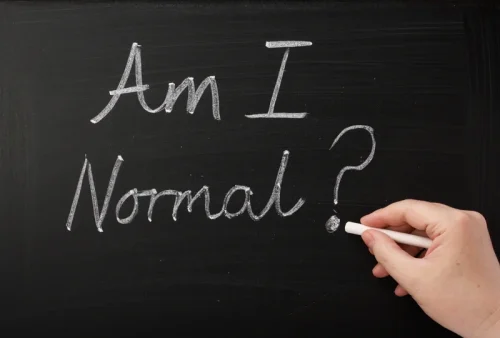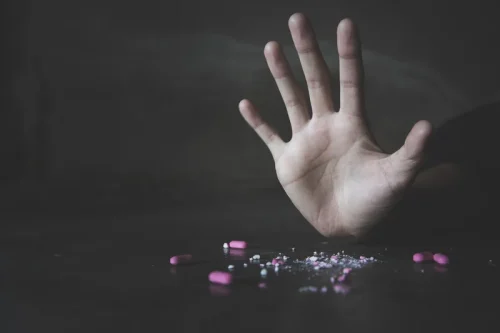Can Alcoholism Be Cured? The Path to Sobriety Hope and Reality

It may signify that your course of treatment needs to change for the time being, but that is something you should always discuss with your healthcare provider and/or therapist. Alcoholism and its symptoms can be successfully managed with effective treatment. It’s important to note, however, that the most effective treatment for alcoholism will vary for each individual. Partial hospitalization programs (PHPs) are outpatient programs that function much like inpatient programs but without the residential requirement.
Asheville Recovery Center Can Help
Working to stop alcohol use to improve quality of life is the main treatment goal. However, even with this great accomplishment, it’s also important to remember that this is just the beginning. Having consistent accountability and support can make all the difference when it comes to abstaining from alcohol long-term. Medical professionals working in the field of addiction recovery explain that abstinence is the only cure for alcoholism. However, curing a condition implies that the body is back to the way it was, which isn’t the case when you recover from alcoholism. Hence, a more accurate statement would be that alcoholism can be treated, which calls for controlling a problem to reduce its symptoms.
Will I Relapse After Treatment?
However, remember that relationships with health care providers can take time to develop. Cognitive–behavioral therapy can take place one-on-one with a therapist or in small groups. This form of therapy is focused on identifying the feelings and situations (called “cues”) that contribute to heavy drinking and managing stress that can lead to a return to drinking. The goal is to change the thought processes that lead to alcohol misuse and to develop the skills necessary to cope with everyday situations that might trigger alcohol misuse. Below can alcoholism be cured is a list of some of the providers who are typically involved in alcohol treatment and the type of care they may offer.

Alcohol use disorder
A comfortable dining room, lounge, activity room and TV area offer space to socialise, whilst tranquil holistic therapy rooms are the key to revitalising alone time. As a screening test, the single question about drinking patterns is as good as slightly more detailed ones, such as the CAGE questions. But these may be easier for concerned family members and friends to ask, since they may hesitate to ask direct questions about quantity. The American Medical https://ecosoberhouse.com/ Association recommends a two-drink daily limit for people assigned male at birth (AMAB). Heavy drinking in this population is five or more drinks in one day or 15 or more drinks in a week. People assigned female at birth (AFAB) should limit drinking to one drink a day.
- But friends and family may feel unsure about how best to provide the support needed.
- It can also be prescribed after undergoing rehabilitative therapy as a way to prevent relapsing.
- The moment we try to fool ourselves into believing that we are somehow suddenly immune to alcoholism, we are in trouble.
Types of Behavioral Treatments
- Medical professionals working in the field of addiction recovery explain that abstinence is the only cure for alcoholism.
- Alcoholics can never return to drinking casually or socially, as the dependence is permanent.
- Alcohol use can have a big effect on the people close to you, so couples or family therapy can help, too.
- As much shame as symptoms may trigger, drinking problems are an understandable human predicament.
Treatment for alcohol addiction is individualized, so each person’s care plan will depend on their unique needs. Because although you read about the odd person “never” experiencing cravings again, thousands of people in virtually identical positions do not experience the same cure. Well, alcohol stimulates the production of certain chemicals in the brain, and these make us feel good. We drink a bit more and it eventually produces a sedative-like effect. Alcohol can cause severe negative effects on the brain and body when overwhelmed.
When addressing drinking problems, it’s important to also seek treatment for any accompanying medical and mental health issues. Alcoholics Anonymous® (also known as “AA”) and other 12-step programs provide peer support for people quitting or cutting back on their drinking. Combined with treatment led by health care providers, mutual-support groups can offer a valuable added layer of support. However, just as those with chronic conditions such as asthma or rheumatoid arthritis may have flare-ups of the disease throughout their life, for some alcoholics, relapse is part of the process. If a relapse occurs, it’s important to remember that this is not a sign of failure, but a blip on the road to lifelong sobriety.

How Long Does Xanax Withdrawal Last?
This addresses the powerful psychological dependency a person has on alcohol. A qualified therapist will work with individuals on a one-to-one and group basis; teaching them how to change their alcohol-seeking behaviors. The therapist will concentrate on treating them new coping skills, meaning they will be better equipped to deal with life stresses and problems. People often use alcohol to escape problems in amphetamine addiction treatment their life, psychotherapy will help them address this and give them the coping skills to prevent them doing this in the future. A therapist will also address the problem of alcohol triggers; this is something that triggers a person to use alcohol. Changing these behaviors is often difficult for alcoholics, as it usually involves avoiding places they used to drink or people they would drink with regularly.
- By applying learned skills and coping mechanisms, individuals gain the foresight to fight addiction as well as reject triggers and temptations that may occur upon entering into recovery.
- Naltrexone acts in the brain to reduce craving for alcohol after someone has stopped drinking.
- Christine brings many years of clinical experience to the team at Recovery Cove, where she is currently the Clinical Director.
- By making alcohol consumption an unpleasant experience, it encourages people suffering from chronic alcohol abuse to practice abstinence.
- Behavioral therapy works to identify the source of addiction, whether it be a co-occurring disorder, trauma, or both.
- Individuals who rely on alcohol to relax or reduce their anxiety are at elevated risk for developing alcoholism.
Care at Mayo Clinic
For most people who drink, alcohol is a pleasant accompaniment to social activities. Moderate alcohol use — up to two drinks per day for men and one drink per day for women and older people — is not harmful for most adults. Currently, nearly 14 million Americans — one in every 13 adults — abuse alcohol or are alcoholic. Several million more adults engage in risky drinking that could lead to alcohol problems.
IOP Benefits for Alcohol Addiction Recovery
Drugs used for other conditions — like smoking, pain, or epilepsy — also may help with alcohol use disorder. Talk to your doctor to see of one of those might be right for you. Alcohol use disorder is what doctors call it when you can’t control how much you drink and have trouble with your emotions when you’re not drinking.


AUD can be mild (the presence of two to three symptoms), moderate (the presence of four to five symptoms), or severe (the presence of six or more symptoms). Alcohol causes changes in your brain that make it hard to quit. Trying to tough it out on your own can be like trying to cure appendicitis with cheerful thoughts.